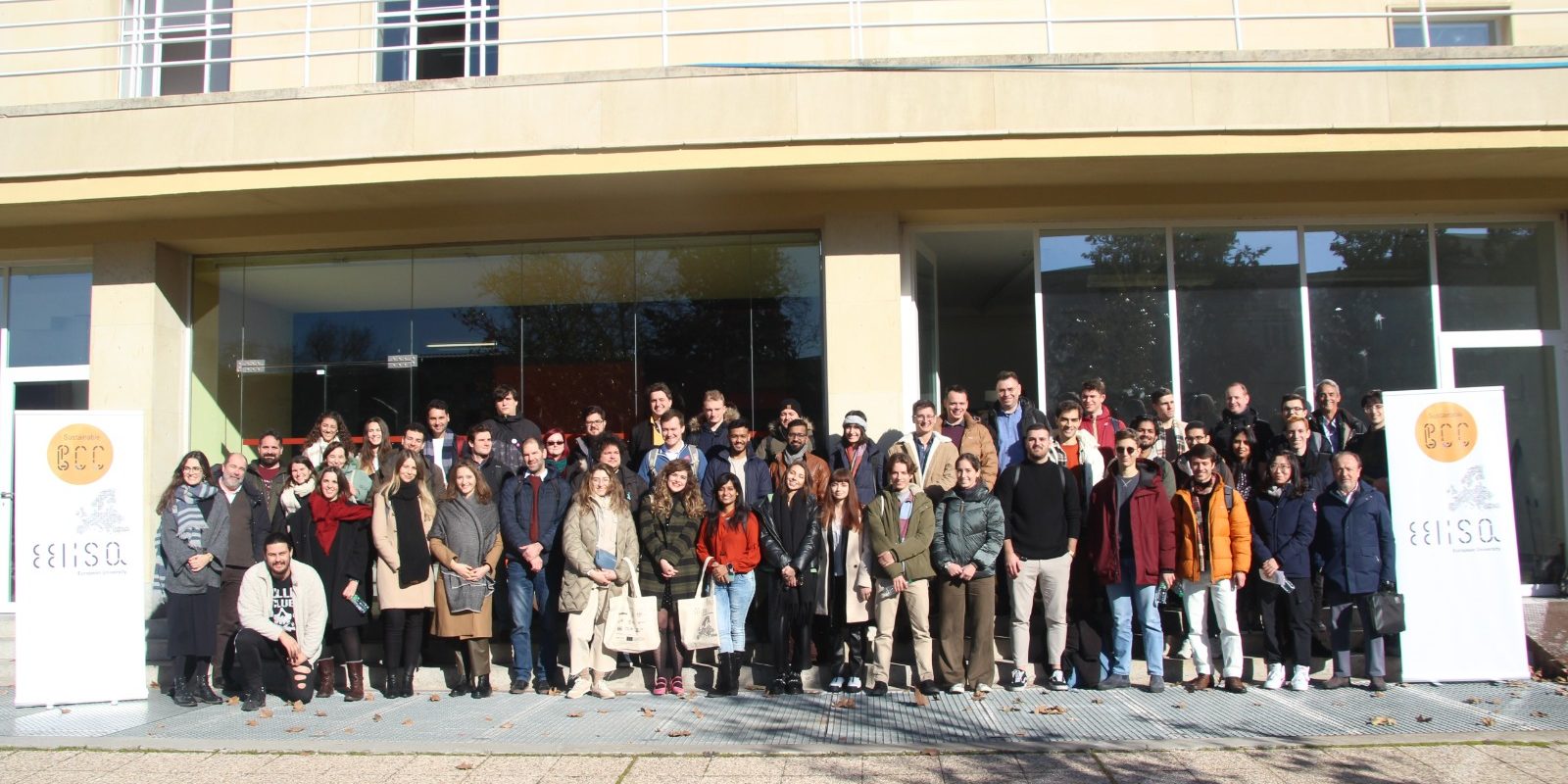150 students from 13 European universities, together with more than 100 researchers and international experts, will work jointly from the 23 to the 27 of January to generate proposals on efficiency, sustainability, and digitization applicable to the facilities of the European Space Agency in Madrid.
This is a groundbreaking experience promoted the EELISA Community Sustainable Buildings, Cities and Communities (EELISA BCC) in collaboration with the European Space Agency in Madrid and the participation of prestigious companies such as ARUP Group, the FMHOUSE consultancy, ACCIONA, SACYR, GBCE (Green Building Council of Spain), as well as associations such as IFMA Spain (International Facility Management Association- Chapter Spain), or ANERR, the National Association of Rehabilitation and Reform Companies.
“Welcome to the future. Welcome to the environment we will all be working on in the next years”. With these words, Sergio Vega, UPM professor, researcher, and coordinator of “EELISA BCC” has received the students during the think tank’s kickoff at the School of Architecture of Madrid (ETSAM – UPM ).
During this launching event, Manuel Blanco, ETSAM’s Director, along with Alberto Garrido, UPM’s vice rector and EELISA Coordinator; and Sofia d’Aguiar, EELISA Executive Director, welcomed over 30 international students from all around Europe. Soon after the welcome speeches, the group traveled to the location where, during five intense days, all workshops, master classes, and brainstorming sessions will take place – the European Space Agency’s campus in Madrid.
To generate fresh and high-impact ideas on energy rehabilitation with the highest standards of sustainability (social, economic, and environmental), and promote a global vision of sustainability among students and future professionals. These are the two main objectives of the “ESA-ESAC – SUSTAINABLE BCC Think Tank” that will bring together a total of 24 international work teams.
Following the spirit of the New European Bauhaus, this pioneering “macro think tank” will tackle the comprehensive rehabilitation of a building located at Villafranca del Castillo campus, in Madrid, and will include six big working labs: four of them will work in parallel on issues related to sustainability such as “health and well-being” (social sustainability), “integral sustainability and energy efficiency” (environmental sustainability) and “efficient management and operation of buildings” (economic sustainability). The fifth workshop will deal with the potential of digitization in all these fields with a transversal approach, and the last “think tank” will gather all participants with the aim of integrating all points of view and results.
All work sessions will have a hybrid format, with part of the teams connected online and the on-site presence of 50 students from universities such as the Universidad Politécnica de Madrid, the Budapesti Műszaki és Gazdaságtudományi Egyetem (Hungary), Université Paris Sciences et Lettres (France), Scuola Normale Superiore and Scuola Superiore Sant’Anna (Italy); İstanbul Teknik Üniversitesi (Turkey), Universitatea Politehnica de Bucharest (Romania); Fiedrich-Alexander Universität Erlange-Nürnberg (Germany) or Teesside University (United Kingdom).
In addition to the European Space Agency, this pilot experience has been developed in collaboration with prestigious companies such as ARUP Group, the FMHOUSE consultancy, ACCIONA, SACYR, GBCE (Green Building Council of Spain), as well as associations such as IFMA Spain (International Facility Management Association- Chapter Spain), or ANERR, the National Association of Rehabilitation and Reform Companies.
For its organisers, this think tank aims to have a lasting impact. “Beyond its logistical challenge, the educational innovation that provides and direct practical uses that can generate, for us, this activity represents a safe investment in terms of raising awareness about sustainability and its challenges among students. We are also sure that, from the ideas that will come up in the coming days, new initiatives will emerge in the short and medium term that will give it continuity in some way¨, comments Sergio Vega.
A repository of videos, MOOCs, academic articles, and various didactic components will be some of the materials that will be available to the public after the project. But for the students involved, there will also be something else – an experience that will mark a before and after in their university careers. “I am very excited to learn about new techniques and methods for sustainable building management and to see the campus of the European Space Agency,” says Ankita Pathak, from the Fiedrich-Alexander University of Erlange-Nürnberg (FAU). “For me, the most exciting part is working with international students, sharing experiences, and learning from them”, adds Olga Soloro from the Universidad Politénica de Madrid (UPM).

